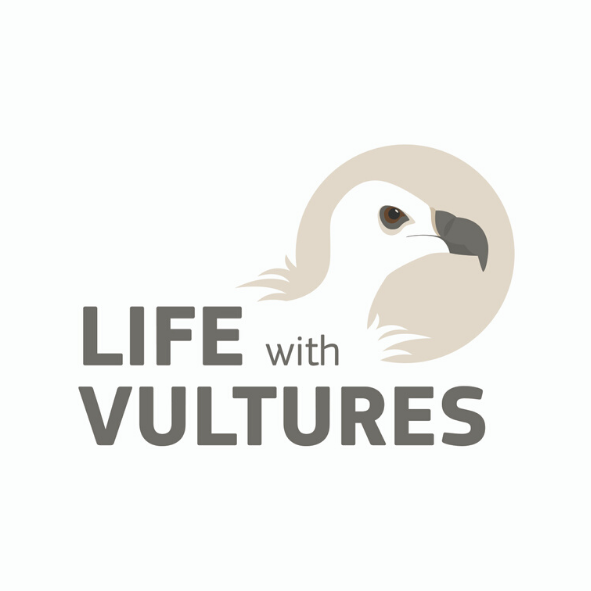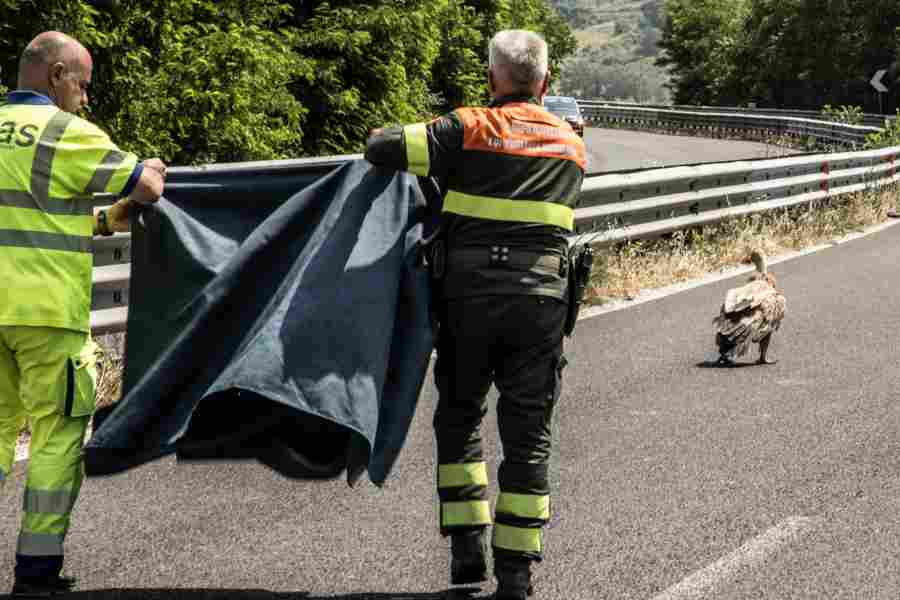
The LIFE with Vultures project team has successfully released 15 Griffon Vultures coming from Spain into the wild in Cyprus as part of the efforts to boost the local population.
15 Griffon Vultures from Spain released into the wild in Cyprus
Last November, 15 Griffon Vultures flew from Spain to Cyprus as part of the project’s efforts to reinforce the local population. Upon their arrival, the birds entered a special, spacious aviary in the Limassol district, where they remained for ten months to acclimatize to the local conditions. Before their release, the Game and Fauna Service also fitted GPS transmitters on all released birds to enable the project team to track their movements and condition. The LIFE with Vultures project team then successfully released, in two batches, all the Griffon Vultures into the wild, where they belong. From experience and examples of similar efforts in Europe, it is expected that the imported vultures will mingle with the remaining local Griffon Vulture population in Cyprus and that they will soon begin to use the same feeding and roosting areas.




Reinforcing the endangered Griffon Vulture population in Cyprus
The release of Griffon Vultures aims to strengthen the Cypriot population of the species, which currently numbers around 8-10 birds and is on the verge of extinction due to poisoning and other threats. Transferring birds from other geographic areas is an important tool that scientists have at their disposal to boost extremely small and vulnerable populations of species.
The project plans to release 15 more Spanish Griffon Vultures in Cyprus in 2023. Spain is arguably the best country to provide these birds since it’s home to 90-95% of the Griffon Vulture population in Europe. The Junta de Extremadura donates these birds to the project, AMUS performs the necessary health checks and the Vulture Conservation Foundation arranges their safe transportation.
Combating the Griffon Vulture’s biggest threat to preventing its extinction in Cyprus
Although the release of vultures is vital, it is not enough. Halting the dramatic population decline and restoring the species to its “former glory” is a long-term challenge that requires concerted action by all stakeholders. For this reason, within the framework of the LIFE with Vultures project, efforts are being made to prevent and deal with the biggest threat facing the species, the illegal placement of poison baits in the countryside.
The actions against poisons and the actions to strengthen the vulture population that the project implements follow the conclusions and recommendations of a recent study that analyzes the viability of the Griffon Vulture population in Cyprus. Based on this study, if no action is taken to protect the Griffon Vulture, the species will go extinct from Cyprus in just 15 years, mainly due to the high frequency of poisoning incidents. For the population to recover and to ensure the long-term survival of the species in Cyprus, poisoning incidents must be significantly reduced, while the population must be strengthened with individuals from other geographical areas.
The fate of these birds now lies in our hands, and it is the duty of the project team to ensure a welcoming and safe natural environment for them, free from poisons and other threats.
The LIFE with Vultures project

LIFE with Vultures is a targeted conservation project for the protection of the Griffon Vulture in Cyprus. In this four-year endeavor (2019-2023), BirdLife Cyprus, the Game and Fauna Service, Terra Cypria – The Cyprus Conservation Foundation and the Vulture Conservation Foundation have joined forces to tackle the main threats facing the Griffon Vulture and prevent Cyprus’ most threatened bird of prey from going extinct. The project has a 1,375,861 Euro budget and is co-funded (60%) by the EU’s LIFE programme.

Source: BirdLife Cyprus article



